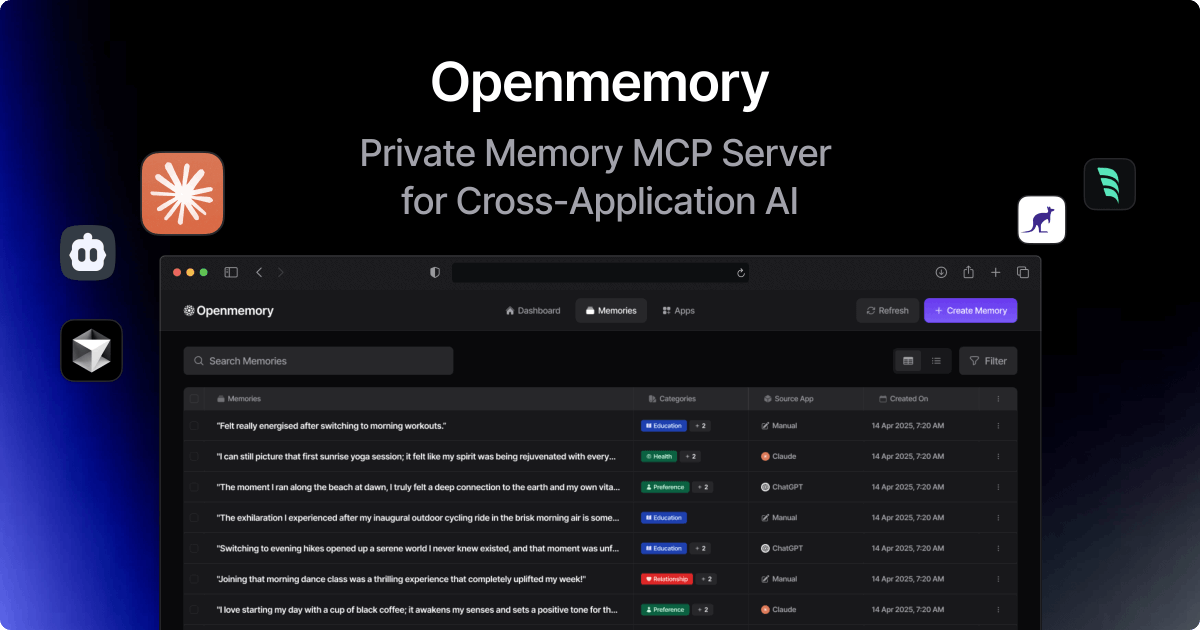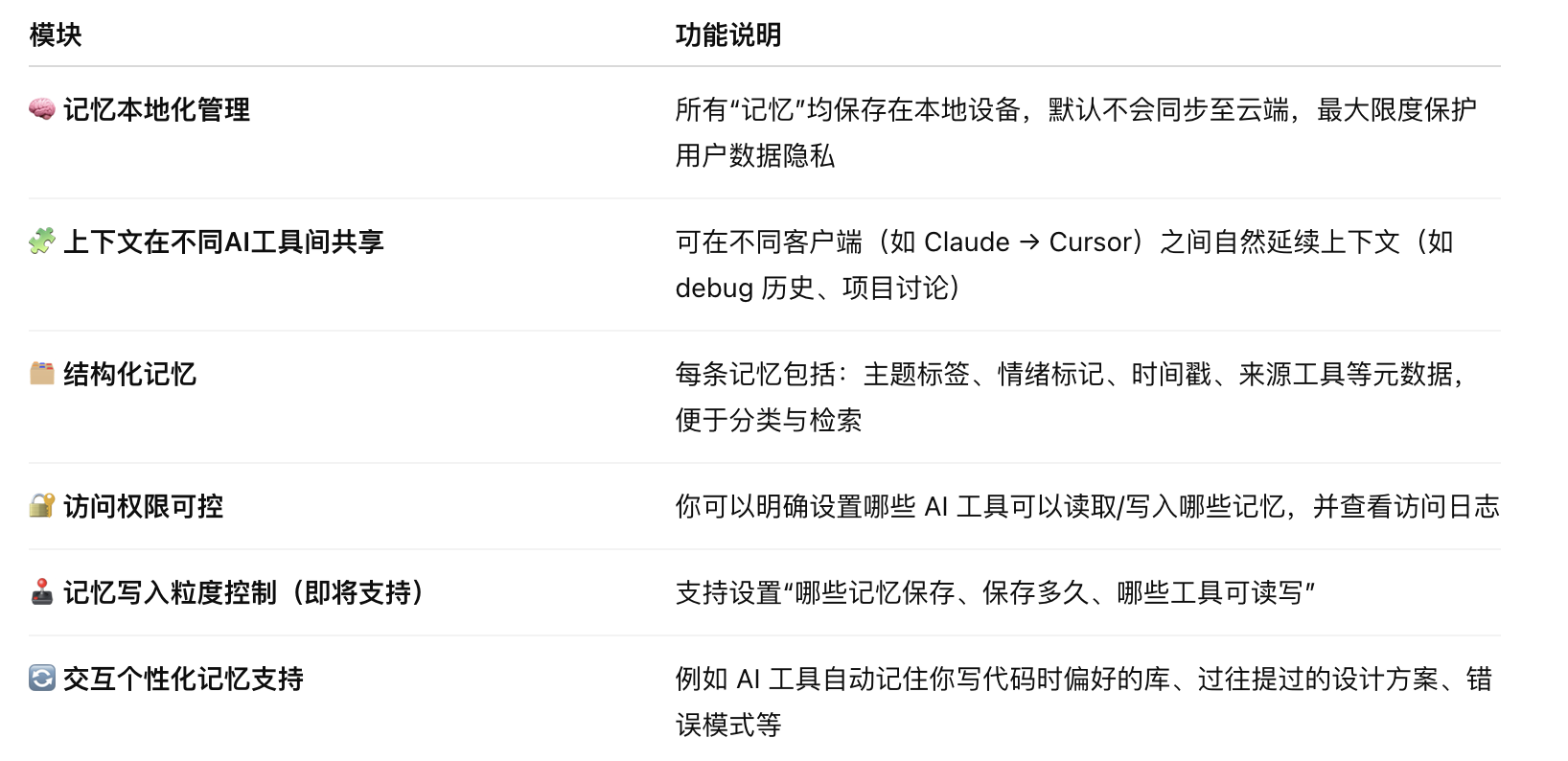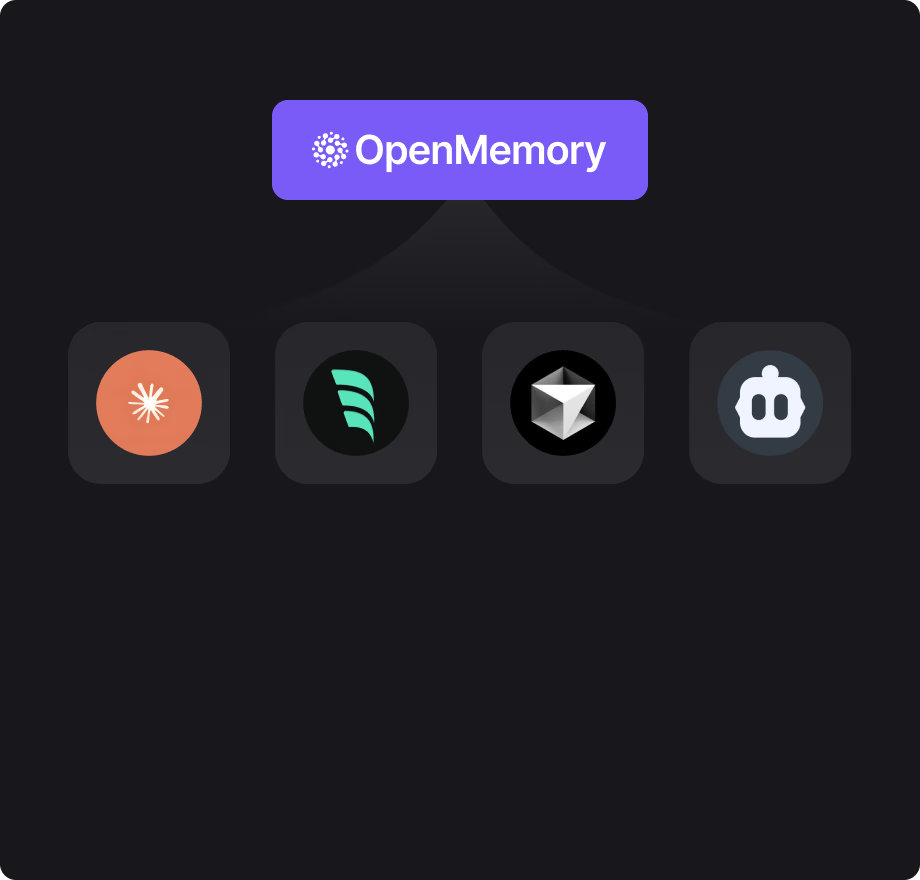- Core function bright spot
- # Typical Uses
- # System architecture and security model
- To be published and planned functionality
OpenMemory MCP is a locally run application for the storage, organization and management of your “ memory “ to carry context between different AI tools. It proposes solutions to the three main difficulties of the current LLM tool: “Remembrances of Inconsistence”, “Deficit context”, and “Inadequacy of privacy”:
-
To provide a unified, structured and privately owned “memory layer”
-
Localization of memory management, privacy security
-
User-led data flow through permission models
-
Support extension for multi-category AI client ecology
It allows you to use historical information, dialogue style, preferences and project status on a continuous basis between Claude, Cursor, Windsurf, and other LLM tools, and thus achieve a true cross-platform, continuous AI interactive experience. It can be understood that:** for the first time your A.I. personal assistant has a truly “you” permanent memory module, which can also be called back and forth between various AIs, while ensuring that privacy and control are in the hands of users**.
Core function bright spot
# Typical Uses
** Project context transmission**
- You still have access to design details, constraints and requirements when you discuss an API design in Claude and move to Cursor code.
** Debug track records**
- MCP automatically records how you’ve checked certain types of bugs in the past, and AI can make proposals on the basis of these models.
Prompt Historical Memory
- Storage of your alert style in different tasks so that different tools can imitate or continue the style.
** Highlights and memories of the session**
- Recording the summaries of past meetings and your feedback, which AI can quote when generating a document or summing up.
** Log of product evolution**
- Recording the entire process of achieving the feedback from functional requirements, AI supporting retrospective and iterative.
# System architecture and security model
Local priority (Local-First):
-
All data are only available locally by default and can be operated without network connections;
-
There will be no automatic synchronization to clouds unless the user takes the initiative to export or share the operation.
• Auditable (Permission-Based Access):
-
Each AI tool reading/writing memory requires explicit authorization;
-
Users can view detailed access logs and data uses.

To be published and planned functionality



